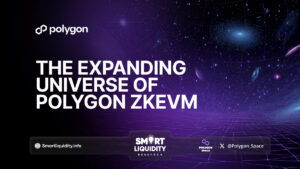Orion Bridge Adds Two New Assets


Orion Bridge is the first peer-to-peer atomic swap bridge: enabling users to trade native assets across different blockchains without limits, delays, refused orders, blocked funds, or exploits.
This week, KNC + MKR have been added to Orion Bridge. Users can now bridge ORN, ETH, USDT, USDC, FTM, LINK, MATIC, COMP, SHIB, 1INCH, UNI, SUSHI, COTI, AAVE, BAT, YFI, SNX, BAL, BNT, GALA, CELR, KNC + MKR between Ethereum and Binance Smart Chain networks. Bridge now!
Orion will regularly add new assets to Orion Bridge, giving users increased access to low-cost cross-chain trading on Orion Terminal. Other bridges may currently offer more chains and assets, but ultimately leave their users vulnerable to high fees, loss, and exploitation. What they are building, both with Orion Bridge and beyond, lays the foundation for truly decentralized cross-chain trading, without compromising assets.
As Orion Bridge grows to include more assets and chains, and as other bridges sadly continue to succumb to exploitation, they plan to become the leading cross-chain bridge in market: eventually enabling users to trade any asset across any chain without limits, delays, refused orders, blocked funds, or exploits.
And while bridges exist as separate entities, no bridges have been integrated into trading platforms for true cross-chain trading. Until now. Orion Bridge V2 enables users to trade popular ERC20 assets, with the low fees and high speed of Binance Smart Chain. More chains, as shown with the new integration of Fantom and Polygon, will be add to reduce fees further, while increasing speed, asset availability, and more.
Need a reminder on how the Orion Bridge compares with other bridges in market? Read on.

Integration
While the increase in bridges coming to market is a positive step forward for interoperability within the space, until these bridges are integrates into trading platforms we will not see true cross-chain trading. Orion Bridge has been integrated into Orion Terminal’s back end, enabling true cross-chain, cross-exchange liquidity aggregation, for the first time. Meanwhile, this enables near zero-fee trading of popular ERC20 assets. Users can trade a growing number of ERC20 assets, with the benefits of the high speed and low network fees of Binance Smart Chain. Orion Bridge is the first and only bridge to be integrate into a trading platform.
Security
Peer-to-peer technology enables true decentralization: the direct exchange of an asset between individual parties without the involvement of a central authority. Unlike other bridges dependent on centralized entities and validators, Orion Bridge users swap with only one counterparty – our brokers. This eliminates the risk of 51% attacks and other vulnerabilities seen across leading bridges.
In the last few months alone, Multichain (Anyswap), Qubit, Wormhole, Meter Bridge, and Horizon Bridge have been exploited – totalling losses of ~$600 million. While the specifics vary, these exploits all come down to the minting and wrapping of assets. Meanwhile, on Orion Bridge, there’s no wrapping or minting of assets – just the atomic swap of one L1 asset for another L1 asset. You don’t lose ownership of your assets until you receive the corresponding pegged token on your chosen chain.
Furthermore, other bridges like Multichain (Anyswap), Optimism, and Polygon are reliant on layers of validators and therefore prone to exploits (as seen in the last couple of months). This reliance on validators means the bridges are not truly decentralize, or secure. Optimism relies on a single sequencer by the Optimism team and validators, while running the risk of incorrect transactions and subsequent loss of deposit and penalties. Polygon security is provide by PoS validators, and is therefore at risk of vulnerabilities. Meanwhile, Multichain (Anyswap) relies on 33 nodes to validate, sign and propagate cross-chain transactions, among which part of the private key is shared. In bridge mode, you receive a wrapped token on the target chain minted by a smart contract. For native tokens, Multichain requires liquidity pools or custodial bridges.
Time / Delays
Atomic swaps are automatic exchange contracts that enable immediate exchange of two assets on different blockchains between two parties – without wrapped assets or delays. While a well-known concept in the community, they are implement in a small number of projects, until now. Via their proprietary peer-to-peer atomic swap technology, Orion Bridge enables immediate settlement for Withdrawing and Depositing – tokens become available for trading right after the user transaction is mined.
Bridges like Multichain (Anyswap) on the other hand have an average settlement time of 10-30 minutes (and up to 12 hours for larger transactions), while withdrawals on Polygon can take up to 3 hours, and up to one week on Optimism.
Fees
Orion Bridge charges no bridge fee on top of network fees. Meanwhile, there are just two low-cost transactions for depositing/withdrawing. making it one of the most cost-effective solutions in market. On Orion Terminal, these fees are only for bridging itself – either depositing or withdrawing. Trading popular ERC20 assets will only incur negligible BSC network fees.
Bridges like Optimism require more than 500k gas and a large fee to claim. Polygon requires the value of 4x ERC20 transfers to deposit, and ~5x ERC20 transfers to withdraw. Meanwhile Multichain (Anyswap) charges 0.1% fee for withdrawal (minimum $80 – $200), on top of network fees.
Limits
Cross-chain trading on Orion Bridge is potentially limitless, with capacity limited only by the liquidity of Orion’s growing Broker Network (including Kucoin, AscendEX, Crypto.com, and more).
Binance Bridge, now decommissioned, had a limit up to $10,000 per transaction. Multichain (Anyswap) has a limit up to $20m, but transactions on other bridges can vary from no limits, right up to large limits of $20m, but with limitations on transaction speeds for higher-value transactions.
About Orion Bridge
Orion Bridge is the first peer-to-peer atomic swap bridge: enabling users to trade native assets across different blockchains without limits, delays, refused orders, blocked funds, or exploits.
SOURCE:
Orion Bridge
REQUEST AN ARTICLE




